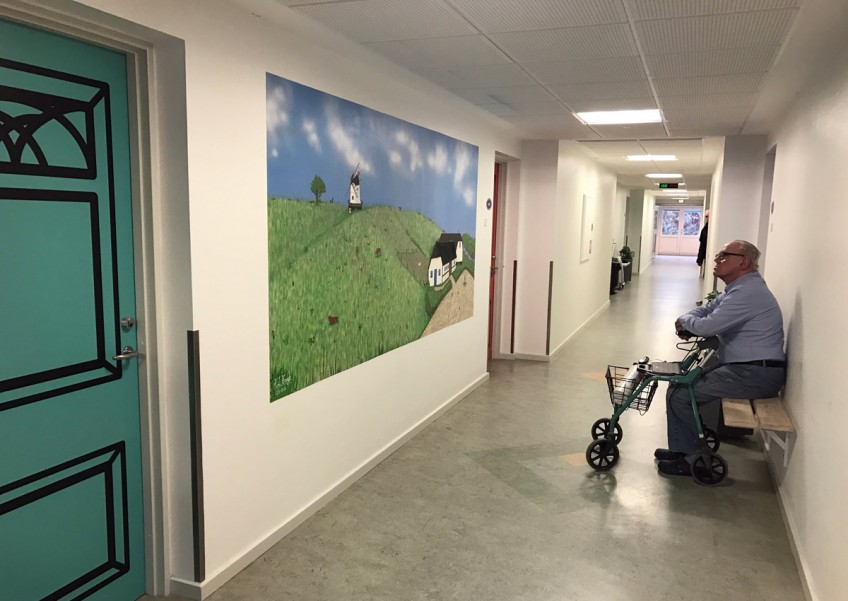An inclusive town where help is at hand for sufferers

Construction of a small town in Denmark where people in the early stages of dementia can move to and live out the rest of their lives will start next year.
The idea is for people with mild dementia to live in apartments within the district and go about their daily lives in the dementia-friendly town.
They will have access to shops, health centres and other leisure facilities.
Service providers, such as bus drivers and librarians, will be trained so they know how to interact and support the patients.
When the patients' mental condition deteriorates, access will be limited to a nearby park or garden.
When their condition worsens, even after 20 years, they will be moved into a nursing home dedicated to dementia patients, which will be located in the same town.
"(The town) is the first of its kind in Denmark. We are trying to make it possible for patients to keep on living a normal life for as long as possible," said Mr Brian Nielsen, alderman of Odense municipality where the City For Life project will be located.
"In the Netherlands, they created a dementia village and there are only elderly people with dementia there. We want to build a new city specially designed for those with dementia, but not build a wall to cut them off from the outside world because they need a normal environment."
This means that the town will still have young people, families and facilities such as kindergartens.
The project, a partnership between the local municipality and a private, non-profit foundation, will house between 200 and 300 people.
It will be situated in Hojstrup, the western part of Odense, about a two-hour drive from Copenhagen.
Odense is Denmark's third-largest city with a population of 193,000.
Currently, the municipality has about 3,000 people with dementia.
Slightly more than half are in the early stages of the disease.
"More people are getting dementia earlier in their 50s and 60s and we don't want to just leave them in nursing homes," said Mr Nielsen.
Dementia is one of the most urgent health and social problems facing the elderly in Denmark.
About 93,000 Danes, out of its 5.7 million population, have dementia.
With the number projected to grow to 164,000 by 2040, the country launched a new national action plan for dementia in September.
About 470 million kroner ($95 million) have been set aside over the next four years to improve dementia care and support.
Singapore will have the same number of people with dementia as Denmark by 2030, according to Singapore's Ministry of Health.
Dementia and its accompanying woes cost Singapore $1.4 billion every year, making it among the biggest drains on the healthcare system here.
Odense aims to train up to 10,000 "dementia friends" in the coming years.
Singapore has already begun conducting such training.
About 13,500 people so far have been taught how to spot and help those with dementia.
They include students and front-line staff at transport companies, banks, retailers and public organisations.
The initiative, spearheaded by Khoo Teck Puat Hospital and Lien Foundation, started by training 2,000 people in Yishun last year and was later expanded island-wide.
By creating dementia-friendly communities, it aims to reduce the social isolation and stigma associated with the disease.
For instance, if a person takes items from a supermarket without paying, the staff will not assume he is shoplifting.
This is also the vision Denmark is working towards.
Said Mr Nielsen: "We are good at building institutions of care but now we are trying to figure out how to make it possible for them to continue living normal lives in the city with all of us, to be able to take the bus downtown to go to the library, read a newspaper, borrow a book and take it home."
Read Also:
Bright ideas help seniors feel at home
Innovative aids to help the elderly stay safe and fit at home

This article was first published on December 12, 2016.
Get a copy of The Straits Times or go to straitstimes.com for more stories.